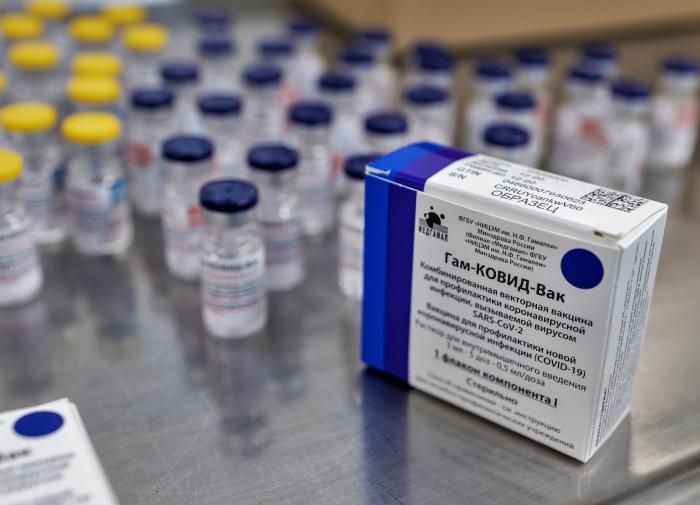Why Europe should buy Sputnik V from Russia, like Hungary did
In Europe, opinions were voiced to follow the path of Hungary and buy the Sputnik V vaccine from Russia, without looking back at geopolitics.

Who buys Sputnik V in Europe
On January 15, Hungary announced the purchase of two million doses of the Russian COVID-19 vaccine to vaccinate one million people. The Hungarian Medicines Agency issued an emergency permit for the acquisition of Sputnik V, without waiting for a relevant decision from the European Medicines Agency (EMA).
Hungary thus became the first country in the European Union that decided to buy the Russian vaccine that has no EMA's approval, nor does it appear in EU's unified vaccination program.
It was only Belarus and Serbia that approved the use of Sputnik V in Europe before Hungary did the same. Bosnia and Herzegovina, which, like Serbia, is not a member of the EU, announced that it would begin negotiations with Russia in an anticipation of the arrival of the vaccine under the COVAX program (a program of the World Health Organization).
Other European countries also ask themselves whether they should follow the path of Hungary, given that the EMA explained that an EU member state may decide to launch an emergency procedure for the approval of a medical product, but it should be used solely on the territory of the specified country.
Czech Republic holds negotiations to purchase Sputnik V
Czech epidemiologist Roman Prymula, who is also an adviser to Prime Minister Andrei Babis, believes that "European countries have the right to conclude their sub-contracts outside the global contract."
"The Czech Republic, like Hungary, will consider the issue of how to obtain quality vaccines," Prymula said, rozhlas.cz website reports. According to the expert, the vaccination process in the EU is going slowly, and "the EU itself realizes the need to start discussions with other manufacturers."
Roman Prymula also noted that none of the world's vaccines passed all three stages of clinical trials. All of the currently available vaccines have their risks, but Hungary found itself in a better position, because it would receive the results of the third phase and quantitatively more vaccines without bureaucratic delays of centralized distribution.
"If the Czech Republic considered purchasing a previously unregistered (in the EU - Ed.) vaccine, it would have the results of all the studies from the manufacturer, but it would only be the Czech authorities that could assess them. Vice versa, if the EU collective agreement were concluded with this manufacturer, we would again become a part of the whole and receive fewer vaccines. Therefore, Hungary's straight way was more profitable, because in this way Hungary received two million doses," Prymula said.
Sputnik V does not yet have a centralized agreement with the EU, but we will not violate anything if we act individually, Roman Prymula believes speaking about future opportunities for obtaining the vaccine. The Czech Republic already tried to negotiate bilaterally with one of the vaccine manufacturers, but no agreement was achieved, he added.
Geopolitics is nothing, human lives are everything
Vasil Velev, chairman of the Industrial Capital Association of Bulgaria, shares a similar point of view.
The entrepreneur believes that for successful immunization, all vaccines that work must be registered in Bulgaria.
"For strange geopolitical reasons, we must not turn away from some of the producers whose effectiveness has been proven," Velev said in the studio of the "Hello Bulgaria" program.
He added that the EU allows the registration of vaccines by the member states.
"Hungary is also an EU member, and it is dealing with the problem. The state can solve this problem on its own without waiting for European officials to make their decision. All this limits our possibilities," Velev said.
Velev does not specify the vaccine, but the analogies are transparent. Similar questions are being raised in other countries - the Netherlands, Slovakia.
Reasons for loyalty to the Russian vaccine
The reasons for loyalty to Russia's Sputnik V vaccine are the problems associated with meeting vaccination schedules in EU countries due to the slowdown or reduction in vaccine supplies (from 30 to 50%) from Pfizer and AstraZeneca. In addition, the European collective agreement on the supply of vaccines is secret, so it remains unknown what country gets what and in which quantities. It is not for nothing that Hungary was the first to worry, because Hungary is one of the "bad guys" for the EU.
Russian vaccines are cheaper and easier to transport. Thus, the two-component Sputnik V vaccine (estimated price is just over eight euros per dose) is significantly cheaper than that of Pfizer (about 16.50 euros per dose) or Moderna (27 euros). Like Oxford-AstraZeneca (just over 3 euros per dose), the Russian vaccine can be stored at minus 12 degrees Celsius, and its efficacy measures 92 percent (AstraZeneca vaccine efficacy ranges from 62 up to 90 percent).
Kirill Dmitriev, the head of the State Investment Fund of Russia (RDIF) announced on Tuesday, January 26, that the Sputnik V vaccine against coronavirus would be available for use in 25 countries during the upcoming several weeks.
"Sputnik V has already been registered in 14 countries, as we will have more than 25 registrations in the next few weeks," he said at the online Davos meeting.
According to Dmitriev, more than 50 countries have applied for the purchase of the vaccine. On Tuesday, January 26, Iran gave a green light to the Sputnik V vaccine, Iranian Foreign Minister Mohammad Javad Zarif said.
Subscribe to Pravda.Ru Telegram channel, Facebook, RSS!


